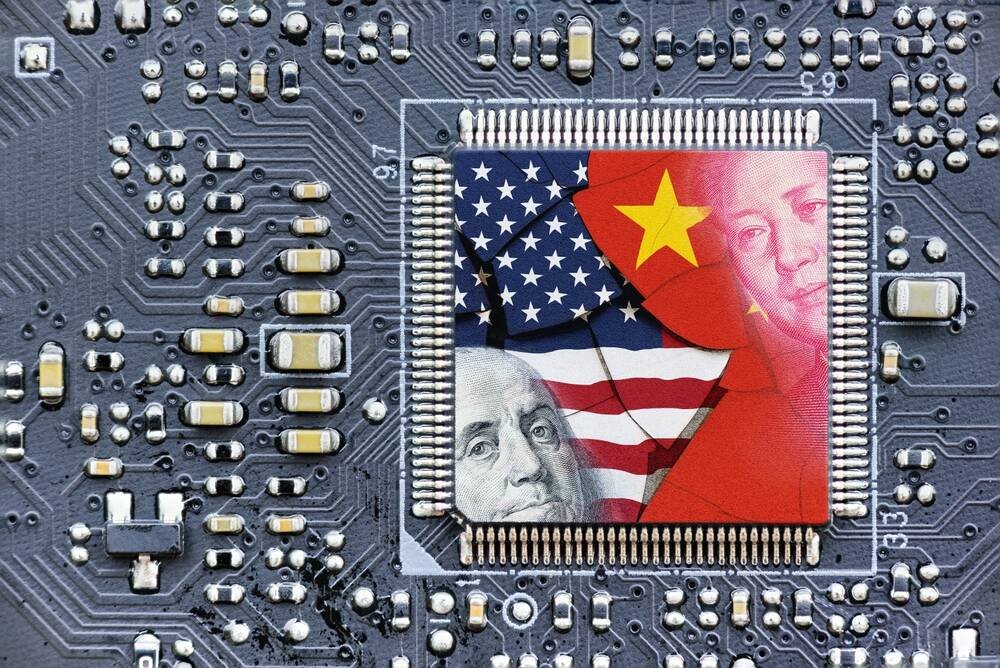Micron Chips In $600M For China Memory Facility Despite Beijing Sanctions

US memory maker Micron is set to invest millions of dollars into a factory in China, despite its products being recently sanctioned as a security risk by the Chinese authorities.
Micron said it plans to invest ¥4.3 billion (just over $600 million) into upgrading its chip packaging facility in the city of Xi'an over the next several years.
The intention is to introduce new high-performance packaging and testing equipment for Chinese customers, Micron confirmed in a post on Chinese social media platform WeChat.
According to the WeChat post, Powercheng Semiconductor (Xi'an) Ltd (Licheng Xi'an) was operating in Micron's factory following a long-term deal signed in 2016. This has now expired, and Micron has agreed to acquire all of Licheng Xi'an's assets in order to continue operations at the plant.
Micron aims to construct a new factory at the site to house equipment for an additional production line to make DRAM, NAND and SSD products, in addition to the existing packaging and testing products created at the Xi'an plant, the post states.
The site's existing workforce will move to Micron, providing employment contracts to all 1,200 Licheng Xi'an employees, and wider investment is expected to create an additional 500 jobs, bringing Micron's total workforce in China to more than 4,500.
"This investment project demonstrates Micron's commitment to China's business and Chinese team members," the post quotes CEO Sanjay Mehrotra as saying.
All of this is despite the memory chipmaker being ruled a threat to national security by China's Cyberspace Administration (CAC) last month, with it ordering that operators of critical information infrastructure in the country should refrain from purchasing Micron products.
The move further soured already strained relations between Beijing and Washington following the latter's attempts to curb China's semiconductor industry, with US Commerce Secretary Gina Raimondo saying that America "won't tolerate" an effective ban on sales of Micron memory chips in China.
It isn't clear whether Micron believes that its blacklisting by CAC is just a short-term blip that will be reversed before long, but the commitment to invest $600 million over the next few years in one Chinese factory suggests that.
- EU boss Breton: There's no Huawei that Chinese comms kit is safe to use in Europe
- Former exec accused of trying to clone entire Samsung chip fab on Chinese soil
- Chinese chipmaker insists it has Intel on-side, not inside
- Huawei could be banned from 5G networks across the EU
That said, the investment in China is relatively small: In October, Micron said it plans to spend $100 billion on building a memory chip fabrication plant in New York State over the next 20 years.
It isn't clear how Micron's new spending plans sit with Washington's attempts to discourage US companies from investing in China. Biden's administration included a "guardrail" in the CHIPS Act that limits the investments that recipients of funds from it can make in China.
"Companies who receive CHIPS funds can't build leading-edge or advanced technology facilities in China for a period of 10 years. Companies who receive the money can only expand their mature node factories in China to serve the Chinese market," Raimondo explained when the rules were introduced.
Micron was not immediately available to comment.
In other related news, Intel has announced plans to build a semiconductor assembly and test facility at a site near Wrocław in Poland. The new facility will help meet the demand for assembly and test capacity that Intel anticipates by 2027, and the chipmaker said it expects to spend up to $4.6 billion on the project which will provide about 2,000 jobs at the site.
According to Intel, the Wrocław site will form one part of a pan-European semiconductor ecosystem that will include its next-gen wafer fabrication site planned for Magdeburg in Germany and its existing wafer fabrication site in Ireland. ®
From Chip War To Cloud War: The Next Frontier In Global Tech Competition
The global chip war, characterized by intense competition among nations and corporations for supremacy in semiconductor ... Read more
The High Stakes Of Tech Regulation: Security Risks And Market Dynamics
The influence of tech giants in the global economy continues to grow, raising crucial questions about how to balance sec... Read more
The Tyranny Of Instagram Interiors: Why It's Time To Break Free From Algorithm-Driven Aesthetics
Instagram has become a dominant force in shaping interior design trends, offering a seemingly endless stream of inspirat... Read more
The Data Crunch In AI: Strategies For Sustainability
Exploring solutions to the imminent exhaustion of internet data for AI training.As the artificial intelligence (AI) indu... Read more
Google Abandons Four-Year Effort To Remove Cookies From Chrome Browser
After four years of dedicated effort, Google has decided to abandon its plan to remove third-party cookies from its Chro... Read more
LinkedIn Embraces AI And Gamification To Drive User Engagement And Revenue
In an effort to tackle slowing revenue growth and enhance user engagement, LinkedIn is turning to artificial intelligenc... Read more

